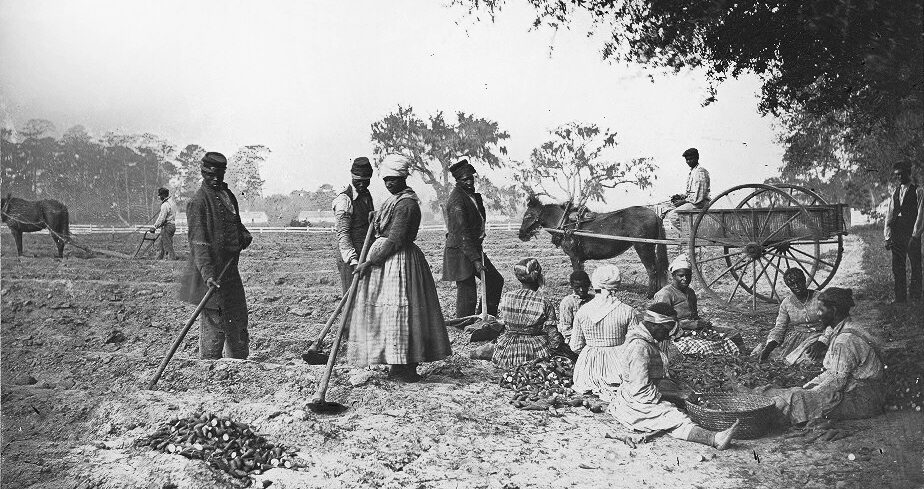Despite His Emancipation Proclamation Lincoln Continued to

JMC Historical Series on Abraham Lincoln
Part II: Fighting to Realize Our Founding Principles: The Emancipation Proclamation and the Start of Slavery's End
This article is a part of our series on Abraham Lincoln. Click here to view the rest of the installments.
 We often associate the Civil War with the end of slavery — and for good reason.
We often associate the Civil War with the end of slavery — and for good reason.
But Lincoln's primary goal in going to war was to save the Union, slavery or not. The Emancipation Proclamation changed the equation.
The Civil War began on April 12, 1861. Though Lincoln morally opposed slavery, he avoided any public comments connecting the war and the rights of slaves. He was concerned more with acting constitutionally and a swift victory to prevent the Union from dissolving.
Once the war began, northern armies refused the service of black men, in spite of a rush to enlist. The South, on the other hand, took full advantage of slave labor in factories, military hospitals, and other Confederate war efforts.
An Executive Decision
The war raged on with heavy loss of life. In the summer of 1862, Lincoln considered an emancipation proclamation as a consequence of the actions of rebel states. He had other strategic advantages in mind as well:
- African-Americans (including former slaves) would be allowed to enlist and fight the Confederacy
- The war would gain moral weight, making the stakes more meaningful.
- Europe (in particular anti-slavery England and France) would be dissuaded from supporting the South in such a battle over slavery.
Lincoln first announced the proclamation in September 1862 as a warning to the South, should they not surrender and stop the expansion of slavery.
The South continued to rebel, and Lincoln signed the Emancipation Proclamation on January 1, 1863.
The Critical Turning Point
 While the proclamation freed some slaves, it did not free slaves in the South, and it did not apply to ALL slaves. Allied border states (crucially needed by the North to win the war) were not included as part of the order.
While the proclamation freed some slaves, it did not free slaves in the South, and it did not apply to ALL slaves. Allied border states (crucially needed by the North to win the war) were not included as part of the order.
And yet, the Proclamation was a critical turning point for the meaning of the war. The North was no longer merely fighting to regain the South, but also for freedom itself. Frederick Douglass described the Proclamation as a "moral bombshell."
A large number of southern slaves fled to the North when they heard of the proclamation, and many took up arms against their former masters. The South suffered as it lost its workforce and southerners scrambled to hide their slaves.
The Emancipation Proclamation's Legacy
While the bloody Civil War was far from over, the Emancipation Proclamation was the first step toward the 13th Amendment (ratified in December 1865), which finally freed all slaves.
Lincoln himself knew that the Proclamation would have a lasting impact:
I know very well that the name which is connected with this act will never be forgotten…It is my greatest and most enduring contribution to the history of the war. It is, in fact, the central act of my administration, and the great event of the nineteenth century. — February 1865
In Part III, we'll look at the famed Gettysburg Address and Lincoln's timely response to bloodshed in the fight for liberty.
This story originally appeared in our email newsletter. Sign up here for more great stories like this >>
Want to help the Jack Miller Center transform higher education? Donate today.
Relevant resources from JMC
 JMC's Abraham Lincoln Discovery Page
JMC's Abraham Lincoln Discovery Page
JMC's Lincoln Discovery Page provides fellows' commentary and articles, lecture recordings, and additional resources to explore from around the web.
Click here to view JMC's Abraham Lincoln Discovery Page >>
![]()
![]() Follow us on Facebook and Twitter for updates about lectures, publications, podcasts, and events related to American political thought, United States history, and the Western tradition!
Follow us on Facebook and Twitter for updates about lectures, publications, podcasts, and events related to American political thought, United States history, and the Western tradition!
Want to help the Jack Miller Center transform higher education? Donate today.
duryeacamuctued96.blogspot.com
Source: https://jackmillercenter.org/emancipation-proclamation-meaning-war/
 JMC's Abraham Lincoln Discovery Page
JMC's Abraham Lincoln Discovery Page